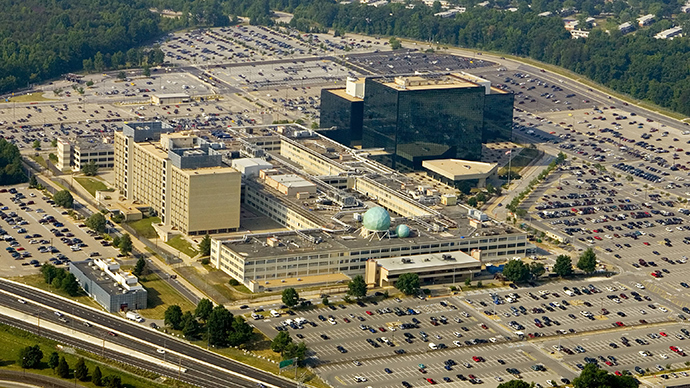The National Security Agency has decided to kill two birds with one stone by advertising for potential code breakers in cipher.
Some initially thought it was gobbledygook, but it turns out a very cryptic text from the NSA was not the product of a four-legged feline run wild on a keyboard or a smart phone gone rogue in an agent’s back pocket. Rather, the tweet bearing the hashtag #MissionMonday was a direct appeal to potential NSA analysts who had the chops to decode the encrypted message.
The missive, consisting of nine blocks of letters, all of which contained 12 characters except the third and the last, ended up being an example of a substitution cipher, by which units of plaintext are replaced with ciphertext according to a regular system.
tpfccdlfdtte pcaccplircdt dklpcfrp?qeiq lhpqlipqeodf gpwafopwprti izxndkiqpkii krirrifcapnc dxkdciqcafmd vkfpcadf. #MissionMonday#NSA#news
— NSA (@NSACareers) May 5, 2014
Twitter detective Daniel Shealey gave the Washington Post the inside scoop on this cryptogram-solver, and the end result is slightly more prosaic than some would have hoped:
Want to know what it takes to work at NSA? check back each Monday as we explore careers essential to protecting your nation.
The Daily Dot later contacted the agency and received confirmation that the tweet is in fact part of a month-long campaign of coded tweets that will “explore careers essential to protecting our nation.”
“NSA is known as the code makers and code breakers,” NSA spokeswoman Marci Green Miller told the online daily in an email. “As part of our recruitment efforts to attract the best and the brightest, we will post mission-related coded tweets on Mondays in the month of May.”
The agency has been known to directly appeal to hackers and crackers before, regularly throwing down the gauntlet at the annual DEF CON hacker convention to recruit potential cyber warriors.
The agency also made it known that those with a slightly checkered past should not automatically be dissuaded.
“If you have a few, shall we say, indiscretions in your past, don't be alarmed. You shouldn't automatically assume you won't be hired. If you're really interested, you owe it to yourself to give it a shot.”
The organizers of the hacker convention, however, were slightly less forgiving towards the NSA’s “indiscretions” when DEF CON 21 rolled around last August.
Just over a month after former NSA contractor Edward Snowden blew the lid on the agency’s dragnet surveillance programs, DEF CON’s founder Jeff Moss asked federal government employees give the 2013 hacker convention a pass.
“For over two decades DEF CON has been an open nexus of hacker culture, a place where seasoned pros, hackers, academics, and feds can meet, share ideas and party on neutral territory. Our community operates in the spirit of openness, verified trust, and mutual respect,” Moss said.
“When it comes to sharing and socializing with feds, recent revelations have made many in the community uncomfortable about this relationship. Therefore, I think it would be best for everyone involved if the feds call a "time-out" and not attend DEF CON this year.”

